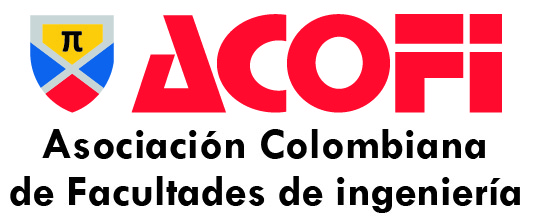PROSOFI, an academic model for accompany integral development of marginal communities
DOI:
https://doi.org/10.26507/rei.v8n15.221Keywords:
social responsibility, community empowerment, academy, integral education, interdisciplinaryAbstract
The Pontificia Universidad Javeriana focuses its mission on solving problems of Colombian society, which is reiterated within its policy about University Social Responsibility, USR, inspired by the ignatian principles, setting a fundamental axis of action for poor communities. As an expression of the USR, in 2009, the Faculty of Engineering began structuring an academic, interdisciplinary and inter-organizational strategy called PROSOFI Social Program to generate larger social impacts, which facilitates the creation of networks between researchers, teachers, undergraduate and graduate students from different areas of knowledge, and community, through the development of projects focused on a specific territory.
Both design and implementation of the model were based on participatory methodologies that pretended mainly to be respectful about the cultural practices of the population and facilitate dialogue between popular and academic knowledge, as well as adoption and strengthening of the self-management abilities of population in Usme, Bogotá, for a term between 2010 and 2016. As a prospective planning action a strategic plan was designed in order to facilitate the model applying in different territories and also to give guidance to other educational organizations. Some results between 2010 and 2012 have been the participation of over 250 students from different faculties of the University other institutions, about 30 teachers, being awarded the Colombia Sustainable Environmental Responsibility Award in 2012, and the testimony from the community of Bolonia territory, which confirm that PROSOFI accompany their own development.
Downloads
References
Bandura, A. (1986). Social foundations of thought and action: a social cognitive theory. Prentice-Hall
Bayen Maurice (1978). Historia de las Universidades. Editorial Oikos-Tau SA. España.
Borda, F. (1997). Participación popular: retos del futuro. Registro del Congreso Mundial de Convergencia en Investigación Participativa.
Carroll J.M., Rosson M.B. (2007). Participatory design in community informatics. Center of Human-Computer Interaction. College of Information Sciences and Technology, The Pennsylvania State University, University Park, USA.
CDU, Consejo Directivo Universitario, Pontificia Universidad Javeriana (1992). Acuerdo 0066, Proyecto Educativo de la Pontificia Universidad Javeriana.
CDU, Consejo Directivo Universitario, Pontificia Universidad Javeriana (2009). Acuerdo 524, Política de Responsabilidad Social Universitaria.
CIC, Congregatio de Institutione Catholica (2008). Estatutos Pontificia Universidad Javeriana. Roma.
Contreras, A., González, M. & Joaunett, C. (2011). Aprendizaje Servicio UC: Experiencia en una metodología para mejorar el aprendizaje a través del servicio a la comunidad. Redes de Colaboración para la Innovación en la Docencia Universitaria. II Encuentro de Centros de Apoyo a la Docencia. Ediciones Universidad Católica del Maule.
Eckehard D, Douglas S.A., Kirkpatrik A.E., Westerfield M. (1997). Participatory Design for Widely-Distributed Scientific Communities. From the 3ed conference on Human Factors and the Web, Denver.
Galarza S., Torres A., Méndez-Fajardo S., Pérez B.C. (2011). Herramienta del análisis multi-criterio como soporte para el diseño del programa social de la Facultad de Ingeniería. Revista Estudios Gerenciales, ISSN 0123-5923. Valle del Cauca, Colombia.
García M., Gómez C., Jiménez C. (2007). La Gestión Comunitaria como una alternativa en la Prestación de Servicios de Abastecimiento de Agua y Saneamiento. Documento de discusión”. Consejo colaborativo de agua y saneamiento, capítulo de América Latina. Grupo de trabajo Gestión Comunitaria y Relaciones con la Sociedad Civil. CINARA, Universidad del Valle. Colombia
Gil Coria E. (1999). La pedagogía de los Jesuítas ayer y hoy. Segunda Edición. ISBN 9788484680574. Editorial Universidad Pontifica de Comillas, Madrid, España.
Godet, M. (1999). De la anticipación a la acción. Manual de Prospectiva y Estrategias
Kaplan R, Norton P. (1996). The Balanced Scorecard: Translating strategy into action. Harvard Business Press.
Méndez-Fajardo S., Opazo M.O., Pérez B.C., Romero Y. (2011). Metodología para la apropiación de tecnologías de Saneamiento Básico en Comunidades Indígenas. Cuadernos de Desarrollo Rural, ISSN 0122-1450. Bogotá D.C., Colombia.
Miklos T., Tello M.E. (2007). Planeación prospectiva, Una estrategia para el diseño del futuro. Centro de Estudios Prospectivos Fundación Javier Barros Sierra A.C., LIMUSA, México.
Oakes W., Coyle E., Jamieson L. (2005). EPICS: Engineering Projects in Community Service. College of Engineering. Purdue University. Int. J. Engng Ed. Vol. 21, No. 1. Great Britain.
Silva, R. (1992). Universidad y Sociedad en el Nuevo Reino de Granada. Banco de la República. Bogotá D.C.
Downloads
Published
How to Cite
Issue
Section
License
Total or partial reproduction of the documents published in the journal is authorized only when the source and author are cited.
| Article metrics | |
|---|---|
| Abstract views | |
| Galley vies | |
| PDF Views | |
| HTML views | |
| Other views | |









